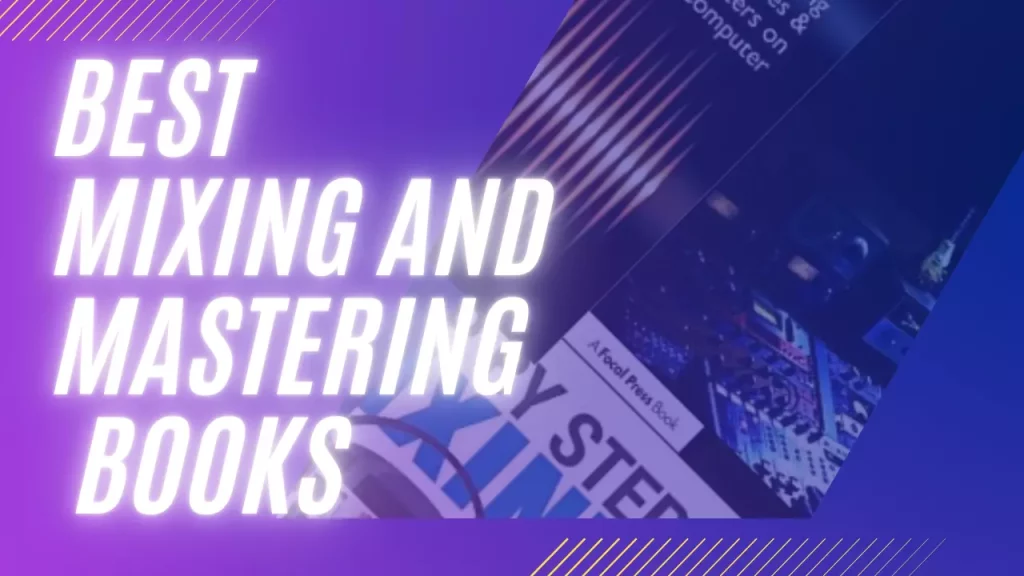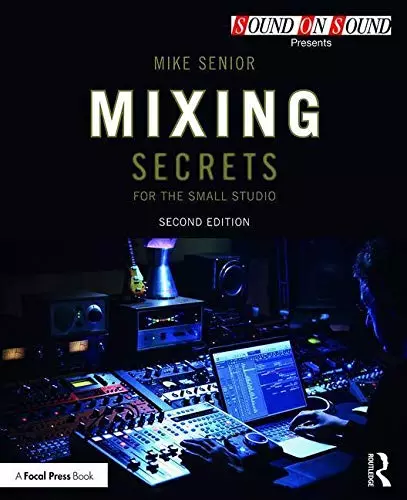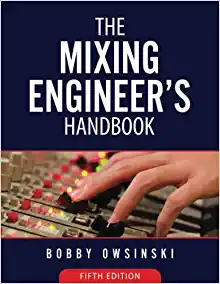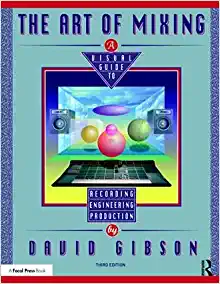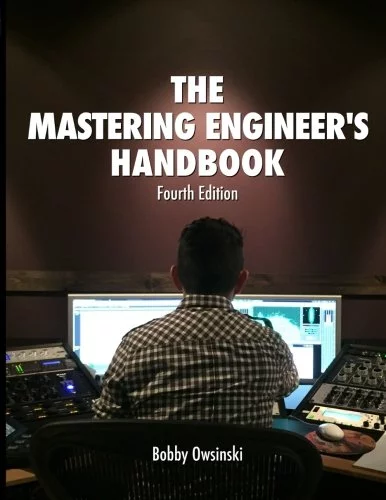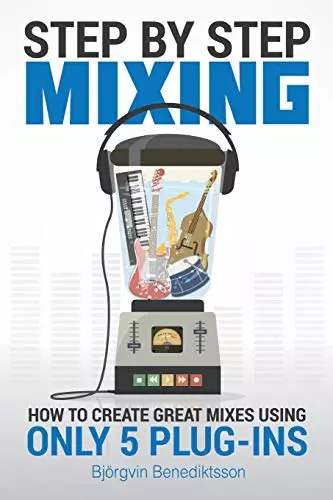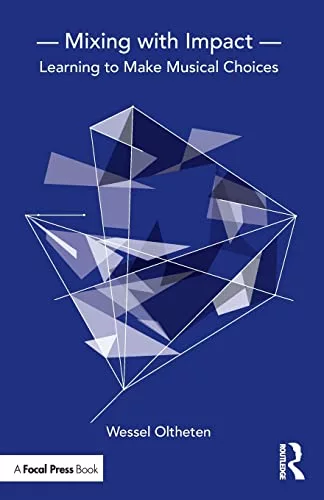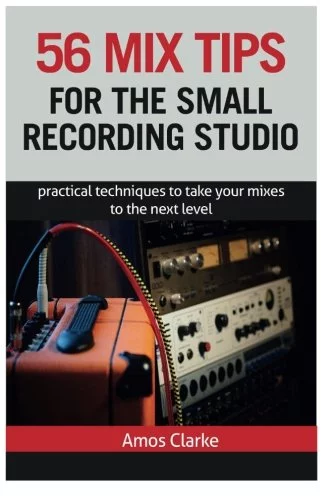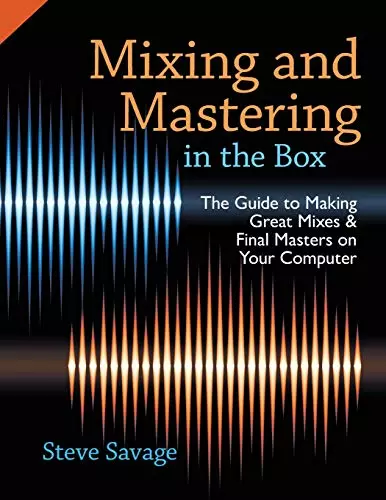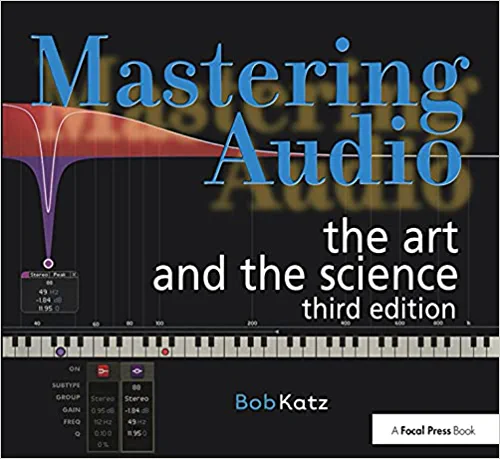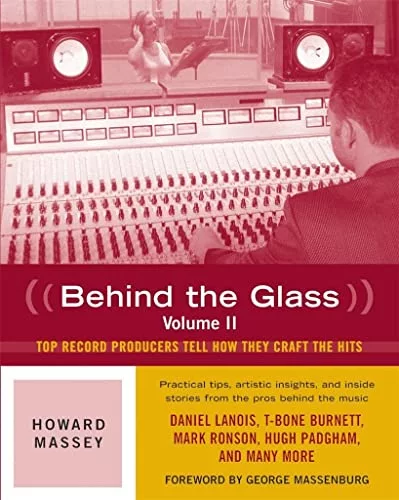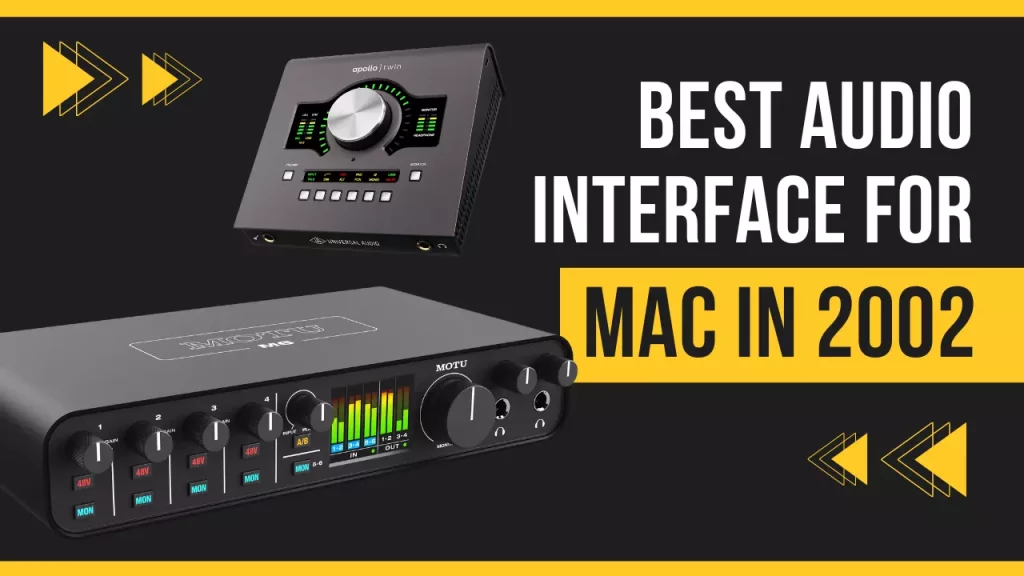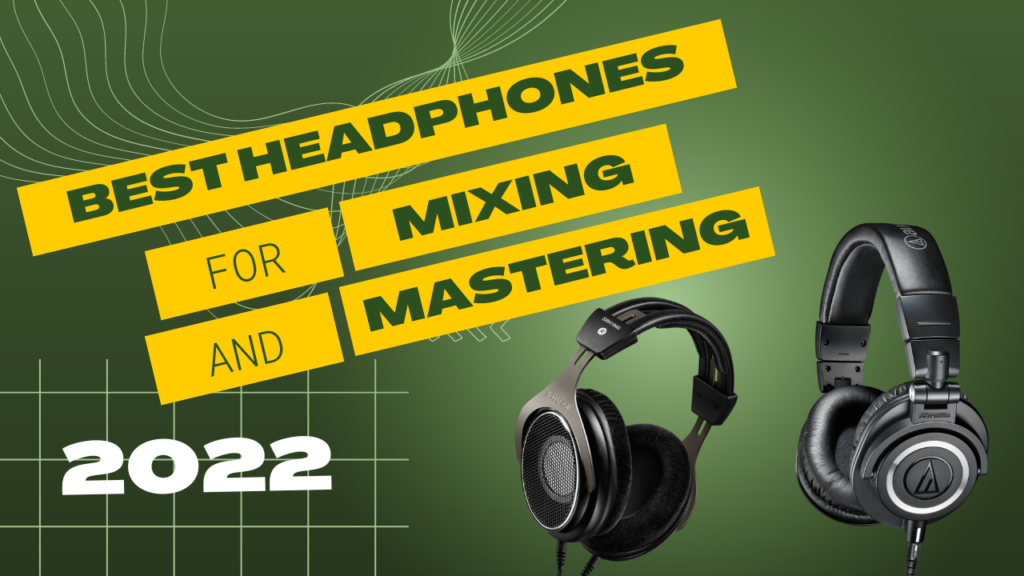The hard truth is that working on your music production chops will only take you so far. To get clean, professional sounding (and to be a well-rounded music producer), you’ll eventually need to learn mixing and mastering. Whether you’re a professional at work, or a beginner just starting your journey in a home studio, building a collection of the best mixing and mastering books will be helpful.
Table of Contents
Best Mixing and Mastering Books
| Title | Best For |
|---|---|
| Mixing Secrets for the Small Studio | Beginners building a professional-quality home studio on a budget |
| The Mixing Engineer’s Handbook | Comprehensive reference guide for mixing engineers, especially those using in the box DAW plugins. |
| The Art of Mixing | Visual representations of mixing and audio engineering concepts |
| The Mastering Engineer’s Handbook | Dedicated students working to build a deep understanding of the craft of mastering |
| Step by Step Mixing | Beginners who need an introduction to using the main tools in a mix engineer’s arsenal |
| Mixing with Impact | Producers looking to integrate the art and science of mixing |
| 56 Mix Tips for the Small Recording Studio | A handy reference manual with concise, direct tips to apply immediately |
| Mixing and Mastering in the Box | Advanced mixing engineers looking for a practical approach to using in the box plugins |
| Mastering Audio: The Art and Science | A dense, formal, but foundational textbook |
| Behind the Glass | Interviews with well-known audio engineers. |
By Mike Senior, this is the ultimate guide for the complete beginner focused on making great mixes. Most of us either started in, or still produce in a home studio. Most producers know the pain of a painstaking production that just doesn’t sound clean. You may be thinking the frustrating truth is that you need a professional studio or immaculately treated room to realize your artistic goals. This is one of the best books for working on a budget to build a home studio, and laying out a step by step approach for mixing your track. A note of caution: this book can be highly technical. This is best for those who think they’ve “tried everything” and still need tips on getting a clean mix down. Even better, if you’re building a studio from scratch, this book has great tips on where you can save money on digital and analog tools.
By Bobby Owsinski, this is the ultimate guide for mixing engineers. If you were going to only purchase one book to answer most questions that come up while producing music, this would be it. Most questions we see asked in forums, or with dedicated YouTube videos, are answered more completely and more succinctly in this book. It also serves as a fantastic guide for building out a home or professional studio. This edition includes a great section about modern recording techniques and mixing using only “in the box” first-party plugins in your digital audio workstation. It breaks down the six elements of a mix, secrets of EQ, “magic frequencies,” and advanced techniques. There’s good reason this book is considered one of the best books for learning mixing.
This book is primarily focused on mixing rock music. If you’re looking for books focused on EDM production, check out our list of best dance music production books here.
by David Gibson, this textbook for audio engineers is packed with valuable, time tested techniques. While the cover may seem hokey at first glance, the colorful graphics it contains are the best visual representation of modern best practices for mixing music. It’s groundbreaking in its approach to explaining the stereo field, and how you can place your sounds within a three dimensional space. This book is ideal for visual learners and beginners, who can make use of the many visual mixing templates for different genres, and covers absolutely everything you need to mix masterfully.
Also by Bobby Owsinski, this is the companion piece to his Mixing Engineer’s Handbook, above. Just like his other works, this focuses on the various techniques for mastering a track. In an age saturated with “one-click” mastering tools, this stands alone as a book written for those learning the craft of mastering music and is a must-read for aspiring mastering engineers. This edition is thoroughly updated to compare the high quality and low cost tools available to modern engineers. It guides you through the challenge of understanding the variety of tools at your disposal, instruction not just when to use them, but also why. It includes topics like making a hot-level master, mastering for vinyl, and mastering techniques for online streaming.
by Bjorgvin Benediktsson, this book has an easy to grasp concept: great mixes take only five tools. The author explains how to shape sound with compression, EQ, saturation, reverb, and delay. The topics covered include how to properly use these effects and tips for how they should work together to make your music sound clean. This is a fantastic book for the complete novice, hailed as the ultimate straightforward guide to taking your mixes to the next level. If you struggle with making all your instruments fit together, EQ’ing each instrument to sit in its frequency range, using reverb and delay without cluttering up your mix, or using saturation with intention, then this is will be a great addition to your library.
By Wessel Oltheten, this book covers many of the practical aspects of mixing. This is a work dedicated to integrating both the art and the science of mixing. It is an intentionally balanced look at the topic. The information here can benefit mostly dance music producers working a home studio, or engineering in a big studio. It will address where to start and how you deal with the interactions of the context of a song. We particularly like the sections that tackle the question every producer has asked themselves head on: Why doesn’t my mix sound as good as someone else’s? The structure is clear and easy to understand and helps you determine how you can tell a story with your track.
by Amos Clarke, a New Zealand-based producer and teacher. This is one of the best books for complete beginners to expand their mixing knowledge. This is part of the fantastic “For the Small Recording Studio” series, all of which are worth a read. As the title implies, the information presented covers 56 concise techniques to simplify the technical mysteries of mixing and mastering. This book keeps it as simple as opening to any page, reading the technique, and applying it. Each tip clearly explains what it is, why it works, and how to use it. It’s a straightforward weapon for the mixing engineer.
By Steve Savage, a prolific jazz and rock songwriter and producer. Best for more advanced mixing engineers, this book is full of practical advice for both mixing and mastering in the box. This book will help you build both your creativity and practical approach to the process of creating great recordings. The book focuses directly on working within a DAW. As you build your skills, if you want to master your own track, and feel you need to more fully understand the process, this is a great book. It’s also one of the only entries on this list that’s one of the best mixing and mastering books, covering both topics in great depth.
by Bob Katz, this is an excellent book that offers a detailed guide of all knowledge you need about mixing and mastering. Many formal professional audio engineer programs start with with this textbook. Though it can be dense, it is the definitive and detailed guide to both mixing and mastering.
by Howard Massey, this is a collection of interviews with some of the most successful and well-known audio engineers and music producers. If you want one of the best mixing and mastering books, you need input from the best mixing and mastering engineers — and that’s exactly what this is. Massey is a master of getting legends to give a deep dive in to their process, techniques, practical applications, and creative philosophies. If you’re interested in getting an intimate, behind-the-scenes, glimpse into how some of the best engineers in the music industry work, this read is well worth the time.
Conclusion
The practices for audio mixing and mastering audio have strong and well-documented theoretical foundations. That means there’s a lot of great info out there, and it’s easy to spend more time learning audio concepts rather than getting practical experience. We believe the best mixing and mastering books should drive you to direct practical applications as well as theoretical knowledge. We’re strong proponents of a “learn by doing” approach. Explore each technique in your DAW. The best audio engineers fearlessly experiment and make technical aspects of mixing and mastering part of the creative process.

